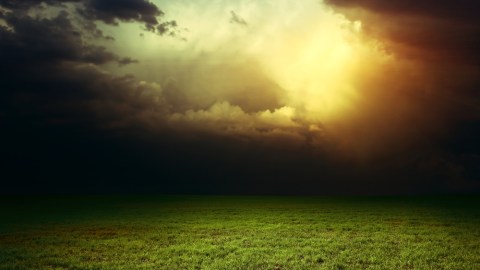Why I Am An Atheist Activist

If you’re not already, you should be reading Surly Amy‘s ongoing post series asking men who are leaders in the atheist movement to speak out against the sexist hate and hostility that we’ve lately been spending so much time battling. It’s a brilliant idea, and she’s already garnered statements from an impressive array of men who hold positions of power or responsibility in secular organizations, but her latest contribution, from Paul Fidalgo of the Center for Inquiry, is possibly my favorite:
This movement (not merely the community of heretics, but the movement) is about lessening the power of religion, superstition, and credulous thinking because we want to live in a world guided by facts, science, and reason, because (and here’s the part I might lose some of you) we want to live in a world that maximizes human happiness, morality, freedom of thought and expression, and equality. Atheism and skepticism for their own sakes are not “causes.” They are not, in and of themselves, worthy of a movement. But we pursue these goals because we know they will bring about a society in which we are more free and equal, and in turn we will be more fulfilled and enriched as a result.
I want to join and amplify this statement. If the only thing we aim to accomplish with our atheist activism is feeling superior – if our only goal is to get together and chortle about how much more rational we are than those benighted religious people – then I don’t want to be part of the atheist movement. There’s nothing wrong with collectively affirming the ideas we have in common; to atheists surrounded by suffocating religious communities, it’s a welcome relief and a way to blow off steam. But by itself, it’s just a tiny part of what we should be doing. I want my atheism to mean something more than that. In fact, I believe atheism does mean something more than that.
I’ve said it before, I’ll say it again: If I thought that religion was false but beneficial, or even just a harmless diversion, then I wouldn’t object to it as strenuously as I do, and I certainly wouldn’t spend as much time writing about it as I do. I argue against religion because I think it’s dangerous, because I think it does more harm than good, and because I think that when people give it up, humanity will be better off. As far as I’m concerned, atheism isn’t an end in itself but a means to an end, and that end is the creation of a freer, more peaceful, more enlightened world.
I don’t mean that religion has only bad consequences. People’s religious beliefs can bring them together in community and inspire them to acts of charity; but people’s religious beliefs also motivate and promote ignorance, hatred, prejudice, xenophobia, violence, terrorism, and holy war. I’m confident that if we give up religion, we can get rid of these evils without losing anything good. There are perfectly good secular, humanist reasons for forming communities, engaging in charity, and treating each other with compassion and dignity, and I happen to believe that people would do these things whether or not they believed in a god.
Giving up religion won’t make us perfect, far from it. But it will remove one of the biggest reasons for doing evil to each other, and thus brings us that one step closer to a better world. As Greta Christina has written, religion is uniquely potent at justifying prejudice because it has no reality check. If you want to keep a whole class of people – an entire nationality, an entire race, an entire gender – in subjection, you always have to worry about people realizing that those others are human beings too and don’t deserve the inferior status bestowed upon them. Even if you conjure up racist or sexist pseudoscience, you always have to worry about pesky facts punching holes in your worldview. Religion is the only way to justify prejudice that doesn’t have this vulnerability, because when a belief is based on faith, the lack of evidence or even the existence of contradictory evidence isn’t a problem.

This is why atheists ought to be allies of LGBT activists, of feminists, of racial-justice advocates, and of everyone and anyone who’s working toward a more just and peaceful world. We stand to benefit from their success, just as they stand to benefit from ours, and so it only makes sense for us to work together. We may be approaching it from different roads, but we all have the same destination. Sometimes, I feel as if I can see that world in the distance up ahead, shimmering in the air like a mirage. It’s just out of reach, but I know we can bring it into reality if we’re willing to work for it and fight for it. That’s why I’m an atheist activist, and that’s what I’m setting out to achieve. If this is your vision as well, I hope I can count on you to join me.
Title image credit: Shutterstock; in-post image credit: One Thousand Needles
Daylight Atheism: The Book is now available! Click here for reviews and ordering information.




